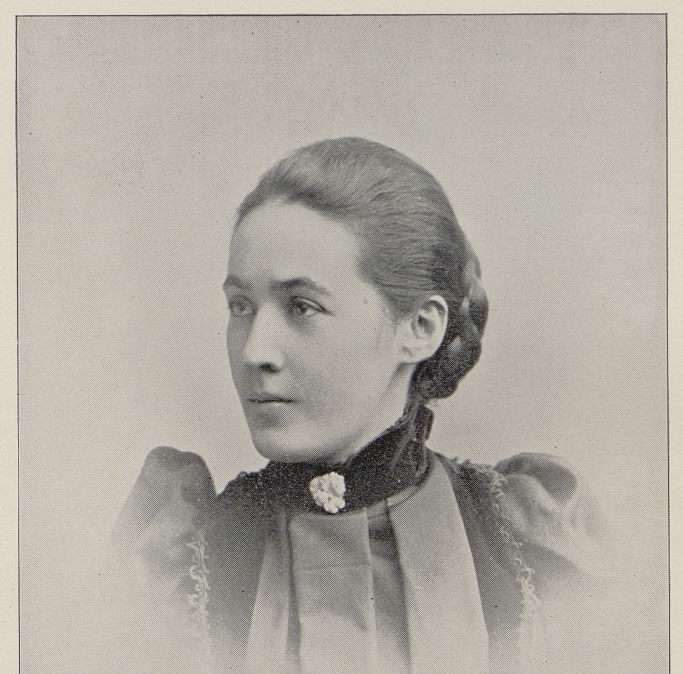Technology digest: A robot that uses AI to snip weeds, Titanic artifacts as NFTs, and more technology news
Happy Friday! Recovered artifacts from the Titanic shipwreck will be made into NFTs, a new digital curatorial department at Cooper Hewitt, here’s the tech news you need to know before the weekend:
Is a weeding AI robot the future of sustainable farming?
Researchers at a Massachusetts Institute of Technology (MIT) startup have found a cutting-edge solution to the bane of farmers’ existence: weeds. The FarmWise team developed a weeding robot that uses artificial intelligence (AI) to identify and snip weeds without disturbing crops.
“We have [a] growing population, and we can’t expand the land or water we have, so we need to drastically increase the efficiency of the farming industry,” FarmWise cofounder Sebastien Boyer said in a press release. “I think AI and data are going to be major players in that journey.”
Its first robot, the Titan, uses machine vision to differentiate between weeds and vegetables like cauliflower, tomatoes, artichokes, and leafy greens. Right now, 15 Titans are roving through 30 large farms in California and Arizona, their movements controlled by iPad-wielding operators who walk alongside the machine.
Last month FarmWise unveiled a new robot, the Vulcan, that’s lighter and pulled through the fields by a tractor. The Vulcan is operated from the touchscreen-equipped tractor cab that Boyer likens to those found in a Tesla. In both models, an AI positions hundreds of tiny blades in and around crops to snip off the weeds.
One might wonder why farmers might need a fancy machine to perform a task that has been done by hand for millennia or more recently with herbicides. There’s an agriculture labor shortage in many areas worldwide, and herbicide-resistant weeds are a growing (pun intended) problem. Plus, herbicides can be toxic to both humans and ecosystems.
The machines have allowed FarmWise customers to ditch herbicides and farm organic, with the AI weeders complementing the work of fieldhands. Thanks to machine learning, FarmWise is expanding its database to enable its machines to weed for six to 12 new crops each year.
“It’s all about precision,” Boyer said. “We’re going to better understand what the plant needs and make smarter decisions for each one. That will bring us to a point where we can use the same amount of land, much less water, almost no chemicals, much less fertilizer, and still produce more food than we’re producing today.”
A material lifecycle CAD plugin is now available for free
Waste is a huge issue in the building industry, and waste reduction is key to a sustainable future. That’s why Felix Heisel, an assistant professor at Cornell University’s College of Architecture, Art, and Planning, worked with Cornell’s Circular Construction Lab to develop RhinoCircular, a CAD plugin that enables architects to evaluate the reuse potential of construction materials early in the design process.
The program went live last year, but last month, the team launched a free version of RhinoCircular for Rhino3D and Grasshopper. It is available for download here.
“Embedded into [Rhino3D] software, the tool consists of several components that can be combined or connected to suit the specific needs of a proposed project in any design phase or on any level of detail,” a brief from the Circular Construction Lab explained. “The circularity indicator itself is a number between 0 and 1 calculated from parameters such as lifespan, efficiency of recycling, and fraction of feedstock taken from renewable, recycled or reused sources. Values of interest, computed parameters or a combination of both can be provided by the user, further organized by construction, use, or end-of-use phases. Results are displayed directly in the modeling environment.”
Cooper Hewitt establishes a digital curatorial department
This week Cooper Hewitt, Smithsonian Design Museum announced it has established a Digital curatorial department that will collect and care for work that originated and exists digitally. Notably, the Digital department is the institutions’s first new collecting department in over 125 years.
Andrea Lipps, associate curator of contemporary design at Cooper Hewitt, will head the new department.
“Digital work challenges us to rethink museum practices around collecting, stewardship, and display,” Lipps said in a press release. “We are developing new and exciting methods of preservation and presentation while envisioning ways to provide greater public access to this collection. I’m thrilled the museum has formalized the Digital department, positioning us to effectively and responsibly collect born-digital work, and I’m honored to lead these efforts.”
Right now, the museum has around 70 file- and code-based digital works. These include digital typefaces, web-based works, data visualizations, and emojis.
The Titanic is now an NFT
First, it sank. Eighty-five years later, it was immortalized in a 195-minute romance and disaster film. N0w, the RMS Titanic is an NFT.
In February, Artifact Labs, a Web3 company that preserves history on the blockchain, partnered with virtual asset manager Venture Smart Financial Holdings and RMS Titanic, Inc. (RMST) to “bring the RMS Titanic and its physical artifacts into Web3 and fully unlock the intrinsic value of the associated intellectual property by tokenizing the assets.”
RMST has the rights to recover artifacts from the wreck site, while Venture Smart Financial Holdings will orchestrate the conversion of the intellectual property associated with the artifacts into nonfungible tokens (NFTs). The NFTs will be offered to investors as a way to fund research, preservation, and education for RMST’s assets.
“We remain dedicated to sharing the legacy of the Titanic, her passengers, and crew, with people around the world,” RMS Titanic President Jessica Sanders said in a press release. “As the salvor-in-possession of the Titanic wreck site, we are determined to ensure that the Ship’s artifacts are preserved in perpetuity and accessible to future generations. We believe that moving into the digital space allows us to reach a broader audience with quality programming that educates and inspires. We are excited to have found the expertise and partners to help us reach those goals.”




